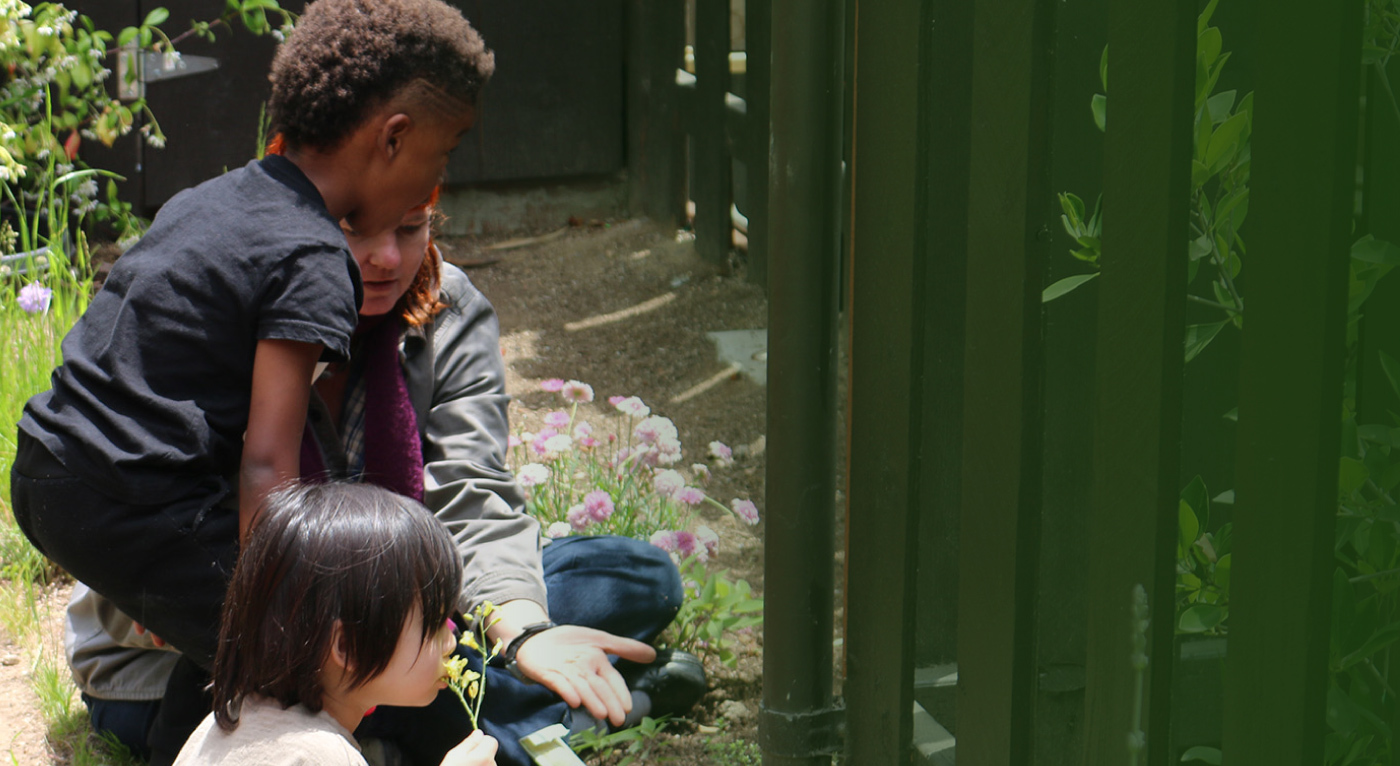Since it opened nearly 80 years ago, Pacific Oaks Children’s School has risen to become a leader in progressive early to teach the revolutionary teaching philosophy they practice. Traditions were passed by a community of innovative teachers and scholars from one generation to the next. Two of these, Elizabeth “Betty” Jones, Ed.D., and Judy Krause, Ph.D., exemplify those core values through their invaluable contributions to Pacific Oaks—both past and present.
Learning from Betty Jones
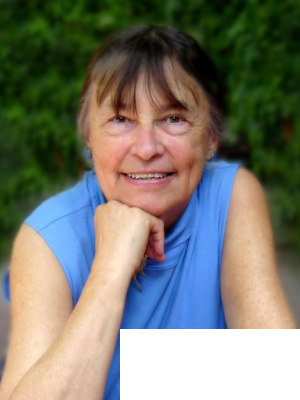 Elizabeth “Betty” Jones, Ed.D., arrived at Pacific Oaks Children’s School in 1954, at a serendipitous moment in time for her vision of childhood education to take hold. The school had been founded in 1945, the year World War II ended, on the notion that instilling principles of peace in our children through education would lead to a more peaceful society. Pacific Oaks Friends School, as it was originally called, began as a morning nursery school, where, thanks to the fair climate of Pasadena, the children learned and played outdoors. This natural setting provided an ideal laboratory for Dr. Jones’ theories on play, which formed the foundation of her educational teachings, as children wandered the yard from one fascination to the next.
Elizabeth “Betty” Jones, Ed.D., arrived at Pacific Oaks Children’s School in 1954, at a serendipitous moment in time for her vision of childhood education to take hold. The school had been founded in 1945, the year World War II ended, on the notion that instilling principles of peace in our children through education would lead to a more peaceful society. Pacific Oaks Friends School, as it was originally called, began as a morning nursery school, where, thanks to the fair climate of Pasadena, the children learned and played outdoors. This natural setting provided an ideal laboratory for Dr. Jones’ theories on play, which formed the foundation of her educational teachings, as children wandered the yard from one fascination to the next.
From the beginning of her time at Pacific Oaks, Dr. Jones had a broad portfolio of responsibilities. She was the school’s music specialist and she taught adults in the teacher education program that would become Pacific Oaks College. At the same time, she was constantly observing the children at play and organizing activities and projects for them, their parents, and the adult learners. Dr. Jones’ first book was based on these early experiences. Titled “What Is Music for Young Children?”, it was published in 1958, the same year the college was founded.
Shortly after the Head Start program was established in 1965, the U.S. Children’s Bureau selected Pacific Oaks as a site to test the effectiveness of early childhood education. The result was a federally funded initiative that Dr. Jones would oversee for more than a decade.
In 1970, Dr. Jones coined the term “emergent education.” The concept, as characterized in the introduction to her 1994 book “Emergent Curriculum,” is reflected in classrooms in which “the curriculum [takes] shape week by week and day by day, with the teachers thoughtfully making plans that [draw] on the children’s interests and activities rather than mapping out everything months in advance.”
Despite Dr. Jones’s growing reputation as a leading educator, Pat Meda, M.A., director of Pacific Oaks’ Center for Achievement, Resources, and Enrichment (CARE)—who would become a longtime friend—says, “Betty never presented herself as anything other than Betty.” In fact, when Meda was new, she didn’t realize that “B.J.,” as she called her, was known beyond the walls of Pacific Oaks until she was giving her first campus tour.
When Meda mentioned Dr. Jones’ name, the prospective student stopped walking. “She asked ‘Is Betty Jones on this campus? I’ve read all her books. Do you think she would talk to me?’” Meda replied, “Sure, Betty talks to everyone.” Ultimately, that individual would be part of the Pacific Oaks community for many years, while Meda had to go back to her co-workers and ask, “Is Betty Jones famous?”
Judy Magee, M.A., had a similar experience. “I first met her when I called as a prospective student. And she answered the phone, and I almost dropped the phone on my end because Iwas so shocked. I knew of her. I had some of her books,” she says. “I was tongue-tied, but she put me at ease immediately.”
Throughout their time together at Pacific Oaks, Dr. Jones was Magee’s teacher, adviser, and thesis chair. Later, when Magee became adjunct faculty and then core faculty, the two were colleagues. And Dr. Jones mentored Magee when Magee was director of distance learning. “She was a mentor even to me as a mom.”
For all Dr. Jones’ reputation as an innovator, one of her biggest contributions was perhaps most surprising. “Betty wasn’t an early adopter of technology by any stretch of the imagination,” Magee says. In fact, Dr. Jones was famous for composing her articles and hammering out notes to colleagues on her manual typewriter. The period key punched holes in the paper. “You could hold them up to the light,” Magee says.
However, Dr. Jones read an article about online learning and decided that Pacific Oaks should be a leader in the technology. “She literally started that online program with that manual typewriter,” Magee says. “These were the days of the black screens, amber letters, and 64-character logins. If your kid picked up the [telephone] extension in the other room, you had to start all over again.”
Those first online classes were challenging because Dr. Jones was not the only one who struggled with technology. Magee says the early difficulties reflected Dr. Jones’ philosophy. All along the technological learning curve, Dr. Jones kept saying, “This is all play to learn, and we will learn what we need to learn.”
Throughout the evolution of her career from nursery school music teacher to leading authority on early childhood pedagogy, the one constant was Dr. Jones’ love of watching children play. “Wherever there were children, there was Betty,” Meda says. “She taught adults what they can learn from play and how they could utilize play to teach.”
After becoming the college’s first professor emeritus, Dr. Jones oversaw the curation of her work into an archive, which was ultimately digitized as the Elizabeth (Betty) Jones Archive in 2022. It encompasses more than 1,100 items including her many books. “She really wanted her work to be shared,” Meda says. “She wanted it available to people.” And Dr. Jones’ legendary typewriter found a place just two doors down from Meda’s office.
Carrying on the Tradition
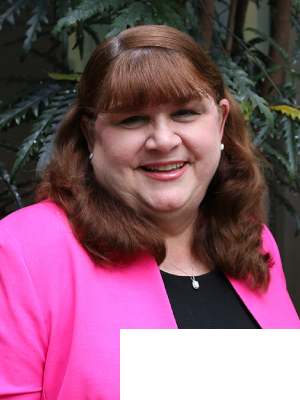 Judy Krause, Ph.D., serves as program developer for the Ed.D. in Early Childhood Education program at Pacific Oaks College, as well as associate dean, School of Human Development and Education. As a young girl, she knew she wanted to be a kindergarten teacher. Little did she know her passion for working with both children and other educators would propel her far beyond her earliest dreams into an expansive and successful career in early childhood education.
Judy Krause, Ph.D., serves as program developer for the Ed.D. in Early Childhood Education program at Pacific Oaks College, as well as associate dean, School of Human Development and Education. As a young girl, she knew she wanted to be a kindergarten teacher. Little did she know her passion for working with both children and other educators would propel her far beyond her earliest dreams into an expansive and successful career in early childhood education.
Since joining the Pacific Oaks community, Dr. Krause has stepped up as a leader in early childhood education and steered the children’s school through the complications of the COVID-19 pandemic. Through her deep-set belief in progressive education and social constructivism, Dr. Krause has carried on the legacy of Elizabeth “Betty” Jones, Ph.D., and others before her to lead Pacific Oaks College & Children’s School into a bright new era.
Before joining Pacific Oaks in 2019, Dr. Krause had already established a rewarding career in education, having taught at both the preschool and kindergarten levels before moving into administrative roles at Cerritos College and the University of La Verne. After more than 30 years in the field, Dr. Krause planned to retire. Then a friend alerted her to a job listing at Pacific Oaks College.
Dr. Krause was hired and began as an administrative faculty member in the School of Education and was promoted to director of Early Childhood Education during her first year, serving as chair of the bachelor’s and master’s degree programs. As had been the pedagogical approach at the college since the 1950s, she was able to put theory into practice by teaching very young children while at the same time guiding adult students who were training to become early-childhood educators themselves. She could not have known at the time that she would have to adopt an entirely new approach to teaching both groups and do it on the fly. When the COVID-19 pandemic broke out in March 2020, Pacific Oaks Children’s School was forced to close temporarily. “In the beginning, we thought it was only going to be for two weeks,” Dr. Krause says.
But by the end of April 2020, it had become apparent that the shutdown was going to last longer than anyone initially anticipated. Dr. Jack Paduntin, president of Pacific Oaks, wanted to explore possible ways to reopen the children’s school safely. He put together a task force, including Dr. Krause, to oversee the process. “We met every single day. We went over guidelines, brainstormed how to adjust our operations to meet the guidelines, and experimented with what might work and what wouldn’t,” Dr. Krause says. “Meanwhile, I was also still teaching two classes at the college, so a lot was going on.
The task force advanced a plan for reopening the children’s school in September 2020 and approached Dr. Krause to take a leave from the college and focus on the children’s school. She agreed, though she had some concerns about how the COVID-19 safety procedures would affect the children. “But everyone was able to adjust so quickly. The kids are so good at reading faces that it was hardly a problem for them. The masks actually brought us closer by helping us build even stronger connections and communicate in new ways.”
To navigate the complexities of the year, Dr. Krause cites the Pacific Oaks core values of social justice, inclusion, diversity, and respect as her guide. “We have generations of families at Pacific Oaks. They choose us because of our core values, and they remain because they see how much every single program, faculty, and staff member shares and maintains them.”
At the end of the year, Dr. Paduntin asked Dr. Krause if she’d like to return to her position at the college or stay with the children’s school. “I had put so much of my heart and soul into the children’s school that I chose to stay,” she says.
As part of her ongoing work in Early Childhood Education at Pacific Oaks, it’s important for Dr. Krause to not only help children learn and grow but to teach other adults and educators how to implement the practice as well. “I believe so strongly in social constructivism and helping young children learn that I want to be a part of spreading that as far as I can,” she says. “Ninety percent of our brain is developed in the first five years of life, so the way children learn during that time is incredibly important. If things go wrong, they can affect the child for the rest of their life.”
To help her spread the message, Dr. Krause gives educational presentations and workshops on the subject whenever she can. For example, she recently recorded a workshop for the 2023 California State Head Start Conference. “Even if just one person takes an idea from my workshop and implements it in their own classroom, I’ve made a difference,” she says.
Dr. Krause is prepared to carry on the distinguished legacy of early childhood education at Pacific Oaks for many years. “I firmly believe that this is where I’m supposed to be. Everything that I have done my entire career since 1978 has led me to be here. And then when I’m done, I’ll still be doing this work. I just won’t be doing it 12 hours a day.”
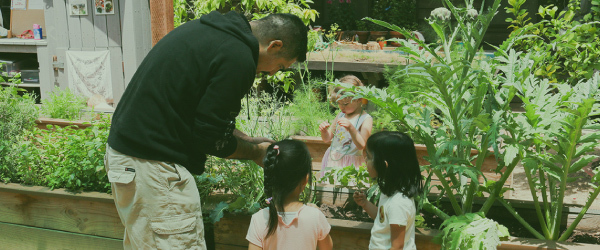
Charting a Course into the Future
At Pacific Oaks Children’s School, teachers use play to guide young minds.
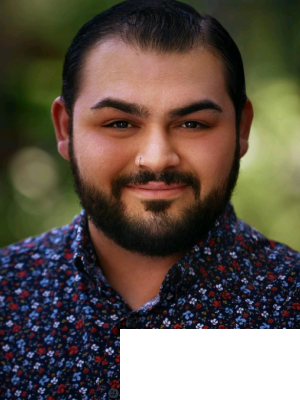 Troy Nalbandian was inspired to pursue a career working with young children because of his own struggles as a young student. He was diagnosed with dyslexia but received help thanks to his “fantastic teachers” in the fifth grade. Now, as a teacher at the Pacific Oaks Children’s School about to complete his Bachelor of Arts degree, Nalbandian is hoping to provide needed intervention to students at an early age.
Troy Nalbandian was inspired to pursue a career working with young children because of his own struggles as a young student. He was diagnosed with dyslexia but received help thanks to his “fantastic teachers” in the fifth grade. Now, as a teacher at the Pacific Oaks Children’s School about to complete his Bachelor of Arts degree, Nalbandian is hoping to provide needed intervention to students at an early age.
Along with fellow teacher Natundra “Natty” White and master teacher Quinn McGonagle, Nalbandian teaches a class of 12 students who are 2- and 3-year-olds. “We focus on really honing the skills of the children to work together as a team while finding their individuality,” Nalbandian says, “making sure that they feel safe, loved, and in a continuous open arena for open learning.”
As they have for nearly 80 years, the children who attend the school spend much of their time outdoors. “We allow them to grow in a safe environment, in an open-air community with people dedicated to the enrichment of young lives,” Nalbandian says.
Another tradition that endures at the children’s school is the importance of play. “We, as a whole, really believe that play is the number one way to learn as well as just giving the children opportunity to develop themselves,” he says. Through natural casual interactions and the guidance of teachers, young children learn social skills. For example, teachers guide the children in learning to share, to the point where, as Nalbandian explains, “Rather than just grabbing, they’re asking, ‘Can I play with this when you’re done?’”
I’m honored to be part of a community that allows me to work with these phenomenal children and to work with such open-ended frivolity,” he says. “I have learned so much in my two years at Pacific Oaks than I would have gotten at a traditional school. I feel very honored and privileged to be part of the Pacific Oaks community.”
Learn more about Pacific Oaks College
If you would like to learn more about the academic programs available at Pacific Oaks, fill out the form below to request more information, or you can apply today through our application portal.

